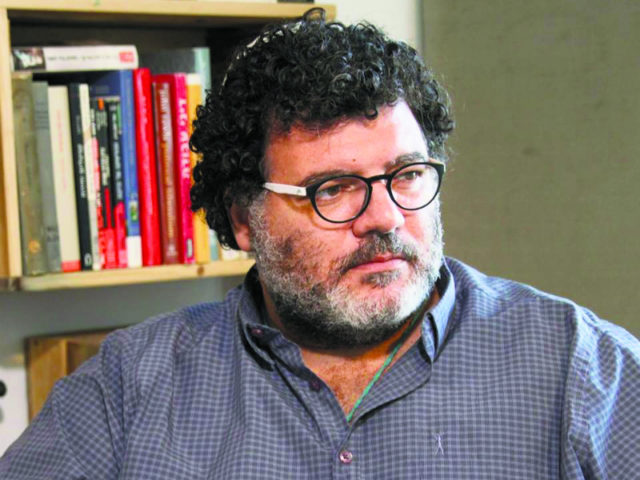Every summer, dozens of Israeli emissaries arrive at Jewish summer camps in Canada with the goal of linking Israel and the Diaspora.
Israeli rabbinical student Yosef Baruch, 43, arrived in Canada on Aug. 4 and is working at Camp Ramah to build ties between Conservative Judaism in Canada and its equivalent in Israel, Masorti Judaism.
To be immersed in one of the quintessential environments of Conservative Judaism for Canadian youth, Baruch said he’s aware of the “big responsibility” before him.
“The camp plays a big role in designing, forming (campers’) Jewish identity, and also their Jewish sense of belonging,” Baruch told The CJN in an interview.
As a rabbinical student at the Schechter Institute of Jewish Studies in Jerusalem, Baruch arrives at camp as part of the Tanenbaum Fellowship. Founded by the late Anne Tanenbaum, the initiative aims to train a future generation of Conservative rabbis, providing support for rabbinic interns at Schechter to spend time at Camp Ramah, as well as shadow the daily life of rabbinic staff at Beth Tzedec Congregation in Toronto, which Baruch did in May.
The fellowship also supports Canadian interns studying at the Jewish Theological Seminary in New York.
Baruch is spending two weeks at camp working with a variety of age groups, teaching classes about topics like ecology in Judaism, giving divrei Torah and exposing campers to Sephardic music and tradition in tefilah and lifestyle, aided by his unique cultural background.
Baruch – from Nesher, Israel, near Haifa – has roots in the Romaniote Jewish community in Greece, one of the oldest Jewish communities in the world. He speaks Greek and is technically neither Ashkenazic nor Sephardic. He said he hopes to enlighten campers and lay leaders about his Jewish culture and the uplifting rhythm in his style of praying.
“I see a prayer, every prayer, as a small spiritual process, a small spiritual movement. It’s like a rock concert … or a jam session,” he said. “If I could bring some influence here, some musical influence, or just open the ears to something (different), I’ll be happy.”
Baruch said he also hopes to enlighten campers about the modern-day relevance of Judaism and prayer, a concept he observed during his “meaningful experience” at Beth Tzedec under the leadership of Rabbi Baruch Frydman-Kohl, the congregation’s rabbi emeritus.
Bracha Feder, Camp Ramah’s head of Jewish learning, said that exposure to a “different personality” is valuable to campers, and in Baruch’s case, it’s not just cultural background, but also personal history.
Baruch spent years working in the high-tech industry, and having not grown up religious, he developed a closer connection to Judaism after his mother died. He is also a social justice activist and helped lead the 2011 economic protests in northern Israel.
“Somebody who began his studies being interested in computers and technology and because of life experience decided he wanted to explore Judaic studies and more of an observant life – it’s interesting for kids to see,” Feder said.
But as a Tanenbaum fellow, the intent of Baruch’s time in Canada is twofold, and Baruch said there’s also lots to pick up from Conservative Jewish culture in this country that he hopes to bring back to the Holy Land.
One of the main things he said he’s observed is an underlying sense of community, an idea, he said, that is missing in Israel, especially amid ongoing political tension in the country between different sects of Judaism, creating separation.
“I think our role as Israeli Jews is to open the door and show the vast majority of Jews in Israel, who are not religious or haredi, that there is another type of Judaism that is all about acceptance and caring and sensitivity and wisdom. That is what Conservative Judaism can bring to the Israeli sphere,” he said.
“The target is not to make people more observant, but more connected.”


























